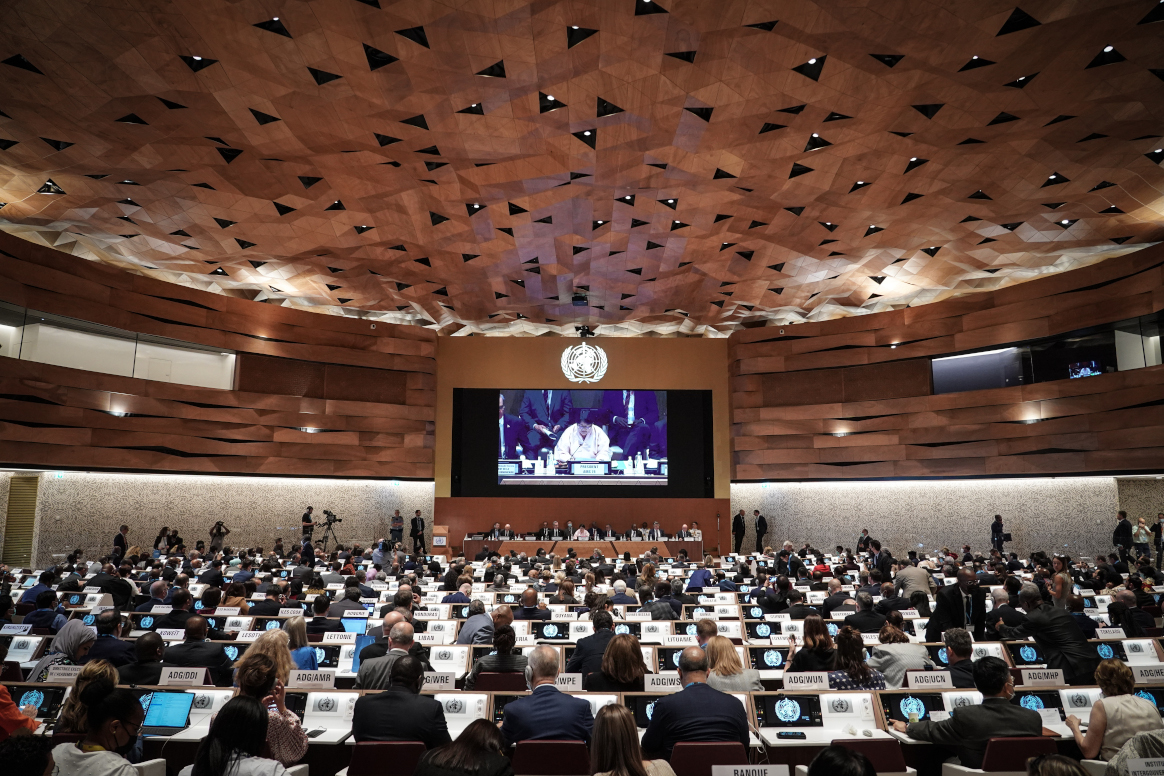
May 2022, Geneva, Switzerland – Global public health leaders convening last week at the World Health Assembly called for urgent action to end polio once and for all before a unique window of opportunity closes for good.
Recent efforts have had a clear impact on the global epidemiology of poliovirus, with endemic wild poliovirus transmission at extremely low levels, with just Pakistan and Afghanistan remaining endemic, and efforts to curb circulating vaccine-derived polioviruses (cVDPVs) showing fruit. Steps have been taken towards securing the legacy of polio eradication systems and know-how, under the Strategic Action Plan for Polio Transition. But delegates cautioned that this ‘window of opportunity’ will not remain open indefinitely, as experts pointed to recent concerning developments such as new wild poliovirus cases confirmed in Pakistan (the first cases reported in 15 months), wild poliovirus detected in south-east Africa (the first on the African continent since 2016), and polio re-emergence in Ukraine and Israel.
“Worrying developments in recent months highlight how fragile this progress is,” said Dr Tedros Adhanom Ghebreyesus, WHO Director-General, addressing the Assembly. “These developments are tragic for the children affected and their families. But the reality is that in the final stages of an eradication effort, this is expected. This year, we have the real opportunity to halt wild poliovirus transmission. At the same time, we must respond faster and better to cVDPV outbreaks, to interrupt all transmission by end-2023.”
Success, however, depends on reaching remaining children who have not been immunized – the ‘zero-dose’ children at the heart of the Immunization Agenda 2030 (IA2030).
Such a need was identified at this month’s G7 joint Development and Health Ministers meeting in Berlin, Germany, where discussions focused on “supporting vaccine equity and pandemic preparedness in developing countries”. The meeting cautioned against letting global crises interfere with other development and public health priorities and urged continued support for existing efforts, including global polio eradication. Polio eradication is a clear and concrete example of the value of working in close integration with other public health and development efforts. Polio staff continue to contribute to the COVID-19 pandemic response and immunization recovery efforts, together with supporting the introduction and roll-out of COVID-19 vaccines.
Ministers and high-level delegations from 20 countries of regions affected by both WPV1 and cVDPV met with senior GPEI leaders for focused discussions on concrete ways to close the final chains of virus transmission. The meetings were chaired by Polio Oversight Board chair Dr Chris Elias from the Bill & Melinda Gates Foundation and respective WHO AFRO and EMRO Regional Directors, Dr Matshidiso Rebecca Moeti and Dr Ahmed Al-Mandhari. Key priorities were the importance of reaching zero-dose children, the challenges of complex emergencies and weak health systems, as well as the importance of inter-country coordination and collaboration.
Underscoring the urgency in giving the world one less infectious disease to worry about once and for all, WHO Director-General Dr Tedros issued a clear challenge to the Assembly: “For countries affected by polio, it is imperative that you reach every last child, and that you respond to vaccine-derived strains with the same urgency as you would to a wild strain. For countries that are now polio-free, it is crucial to accelerate efforts to use your polio assets and infrastructure to build stronger, more resilient health systems. And for all partners and donors, please help us seize the moment to raise predicable funding, for eradication and transition. I urge you to join us in Berlin this October at the pledging event* generously co-hosted by the Government of Germany. Your decision this week to support a stronger, sustainably financed WHO will enable us to sustain capacity in countries that are now polio-free and on the pathway to transition. Thank you all once again for your commitment to consigning polio to the history books.”
This call to action was echoed by Rotary International, the civil society partner of the global eradication effort. Addressing the Assembly on behalf of its 1.2 million members worldwide, Rotarian and Rotary Representative to the UN in Geneva, Professor Dr Pierre Hoffmeyer, concluded: “We call on all countries to address gaps in routine immunization levels and ensure robust surveillance to prevent further virus spread and avert future outbreaks.”
*In April 2022, GPEI partners, led by WHO Director-General, launched the ‘Investment Case for Polio Eradication’, the sister document to the Polio Eradication Strategy 2022-2026, which lays out the economic and humanitarian rationale for investing in a polio-free world, as well as the broader benefits of polio eradication. In October 2022, Germany will generously co-host a global pledging moment, giving the international development community the opportunity to publicly re-commit to this effort, including to support a stronger and sustainably-funded WHO, so that the organization can maintain its capacity to support countries in achieving and sustaining polio eradication, and continue to benefit broader public health efforts, including support for pandemic preparedness and response.



